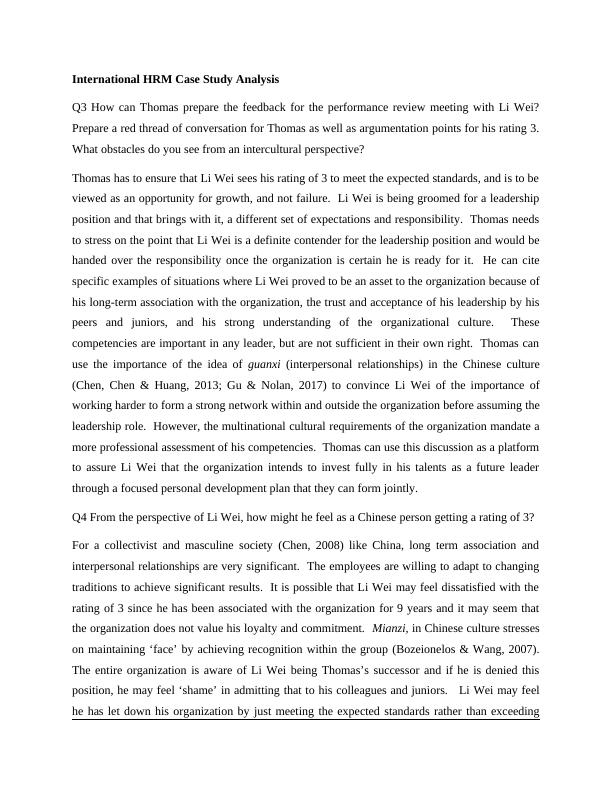International HRM Case Study Analysis
Finding the right view: Developing local talent in local markets and the potential impact of a one-year extension on the long-term career of Thomas, who is considering a repatriation opportunity.
3 Pages790 Words92 Views
Added on 2023-01-20
About This Document
This case study analysis focuses on how Thomas can prepare feedback for the performance review meeting with Li Wei and the obstacles from an intercultural perspective. It discusses the importance of Li Wei's rating of 3 as an opportunity for growth, the need to emphasize his potential for a leadership position, and the significance of guanxi in the Chinese culture. It also explores Li Wei's potential feelings as a Chinese person receiving a rating of 3 and the impact on his self-image and morale.
International HRM Case Study Analysis
Finding the right view: Developing local talent in local markets and the potential impact of a one-year extension on the long-term career of Thomas, who is considering a repatriation opportunity.
Added on 2023-01-20
ShareRelated Documents
End of preview
Want to access all the pages? Upload your documents or become a member.

